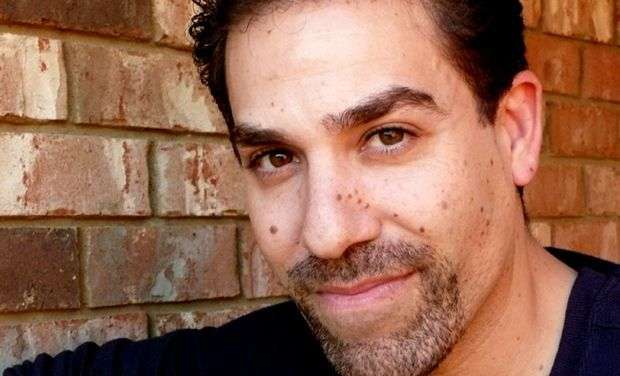Seth Panitch is a dreamer, passionate about utopias. So he comes back again and again to the Cuban stages. This time he came to show, for two weekends, the latest production of the HavanaBama Company.
Alcestis Ascending, released by Panitch in Havana Raquel Revuelta room, is a fable with mythological overtones which mixes contemporary dance and a text by Greek playwright Euripides, all seasoned with a hint of double take and humor.
The highlight: a group of young Cuban and American actors dialogue with the audience in perfect English and in Spanish close to the regular Cubans. All seasoned with the musci by experienced composer Tom Wolfe.
n the leading roles the American Jeff Horger debuts as King Admetus. His wife, Queen Alcestis, is played by Cuban Alianne Portuondo. True to the aesthetics of Tony Diaz, director of Mephisto Theatre, Raissel Cruz takes the cake with his sympathetic character of Hercules.
In this piece work several Cuban dancers who come from groups like Open Dance and the Cuban television Ballet. At the completion of the Cuban dance art contributes Osnel Delgado, dancer and choreographer with a promising career ahead.
After 75 minutes of presentation, we talked in the lobby of the Raquel Revuelta room with Seth Panitch who is also in charge of program management and masters degree in acting at the prestigious University of Alabama.
Assisted in the translation by the assistant director of the play William Ruiz-representative National Arts Council, (NACE) – we learn the details about this project, unprecedented in theatrical relations between Cuba and the United States, which in the past six years has produced successful roles in The Merchant of Venice, Dream of a summer night and More than therapy, all presented earlier in the Island.
“This is the first time a mixed company of Cubans and Americans is presented in New York City. So there were so many people interested in the show and as they liked both will surely want to see our other works, ” Panitch says.
How was the idea of this cultural exchange between the University of Alabama and the National Council for the Performing Arts of Cuba born?
This cultural exchange dates back ten years. It was an initiative of Robert Olin, dean of the University of Alabama, who conceived to support research projects with Cuban counterpart in areas such as the arts, sciences and humanities.
My interest, of course, focused on the theater and, in 2007, I created this project with Cuba. The Cuban William Ruiz is my assistant director.
What selection criteria did you follow with Cuban and American actors involved in the project?
We selected the Cuban actors years ago. We try to keep a stable company where the project and installation of the works are based on the actors involved. In this type of work in the United States is known as repertory company.
For all American actors are graduate students or are still pursuing an acting career with me.
How hard can it be mounting a bilingual play with actors of two nations so different?
Of course you need the help of a good translator, in this case my assistant William.
Also you invest three times more time in the rehearsals, which to mount a show without these features because you have to speak two languages with the actors. However, I much enjoy this very special project. Every experience is different.
Where was the premiere in the United States? How was the reception of the public?
We turned up at a theater off Broadway, at 42nd Street. The show was very well received in the United States. Of course, the American public laughs at different situations from what provokes the laughter to a Cuban.
In these roles the actors said more English speeches than here in Cuba. For us it is like having mounted two different shows but everyone says that you can follow the story.
I am very pleased that we have succeeded in the two countries, which makes us feel that it was worth the effort. In the United States there are some theaters interested in the work and while working for several public companies who only speak Spanish Alcestis Ascending may have a longer life after that.
Did you have some sort of interference with Cuban actors travel to the United States and the same in reverse?
Of course. Sometimes it’s difficult to mount the work and release the show. Every time you do something new, for the first time, a lot of effort is needed.
Would you be open to the presence of Cuban directors in your company?
Normally I direct all works of the company but if a Cuban director would direct some of my works it would be very interesting.
I have not had the opportunity to meet many directors of the island when we come to Cuba because we are always working and that consumes all our time.
What new projects are attractive to you now from the creative standpoint?
All the time I like to do different things. Right now I can hardly imagine a show as difficult as this. When we find something bigger we will start working again.
We are most proud of is that this company gives us a place to meet in a different way as actors, directors, writers, without any masks or other invented dressing. The theater is a reflection of the dream of the people and how they would really be.
The audience joins this experience and doesn’t look at a Cuban actor or an American, but what is going on emotionally between them. To me that is the most interesting of the project.









